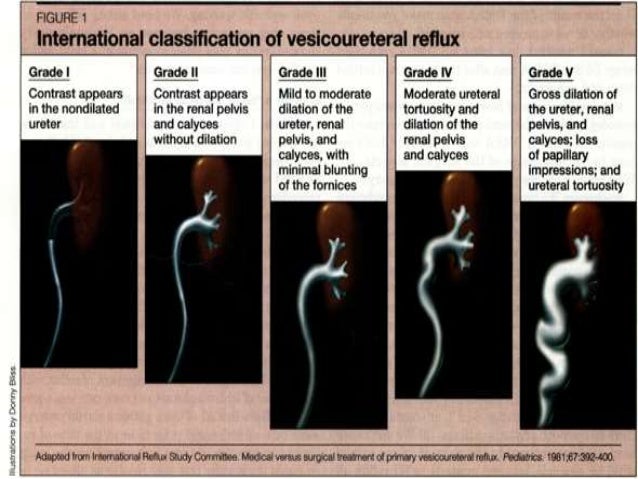Recurrent acute pyelonephritis is frequently related to vur intermittent reflux can be difficult to demonstrate on voiding conventional or nuclear cystograms but can be suspected in the presence of ureteral duplication, renal scarring, or abnormal ureteral orifices adult patients with recurrent ep …. Vesicoureteral reflux and pyelonephritis. 3 discussion vesicoureteral reflux (vur) may be congenital or acquired the most frequent is primary vur, which is mostly diagnosed by the presence of hydronephrosis during prenatal screening ultrasound or during the investigation of urinary tract infection in children []when present, vur is the most significant risk factor in the etiology of pyelonephritis [].
vesicoureteral reflux and pyelonephritis
Get this from a library! vesicoureteral reflux and pyelonephritis : risk factors, prevalence and treatment approaches [leanna p newport;] -- vesicoureteral reflux (vur) is defined as the retrograde flow of urine from the bladder to the upper urinary tract it is a common urological entity among children and it is usually diagnosed in the. Vesicoureteral reflux (vur) is defined as the retrograde flow of urine from the bladder to the upper urinary tract. it is a common urological entity among children and it is usually diagnosed in the prenatal period or after episodes of febrile urinary tract infection.. Pyelonephritis is most common in men in late middle age and older in association with prostatic hypertrophy. women are more prone to infection in childhood and in the reproductive years, periods in which vesicoureteral reflux, bladder trauma associated with intercourse or partial ureteral obstruction due to an enlarging uterus are prone to.

0 comments:
Post a Comment